


Pinpointing areas ripe for growth and innovation in each economy, facilitating the continent’s growth path
Africa Prosperity Rating
Pinpointing areas ripe for growth and innovation in each economy, facilitating the continent’s growth path
Why an Africa Prosperity Rating in 2025?
The Africa Prosperity Rating is the first step in a planned journey of the World Competitiveness Center to deepen its understanding of prosperity dynamics in developing regions.
For African economies, strengthening competitiveness is key to achieving sustainable growth, inclusivity, and global relevance. While competitiveness challenges are not the same the continent over, they do often circle back to the need to develop productive inputs and manage them effectively. Rich with analysis, this data-driven report highlights those economies that are leading the way – exploring how in detail – and also delves deep into the challenges and potential exit paths for others.
As a global rule, strong institutions, reliable infrastructure, and good governance are essential to support entrepreneurship, attract investment, and build long-term prosperity. But there are six major areas in which focusing on competitiveness can feed Africa’s prosperity:
Economic growth and development
Competitiveness encourages a cycle of positive economic reinforcement whereby it offers a framework conducive to greater innovation and productivity, which in turn spurs economic activity and growth, and leads to higher wages. For African economies – particularly those that rely heavily on their natural resources to achieve growth – enhancing competitiveness can provide a path towards diversifying economic activities and reducing their dependency on volatile commodity markets. Such a process can ultimately lead to a more robust economic base and more sustainable development.
Attracting investment
Economies with high levels of competitiveness are more likely to be attractive to foreign and domestic investors. Any improvements by African economies in measures of competitiveness, such as the quality of governance, infrastructure development, and business-friendly environment, could significantly improve the appeal of the economies as investment destinations. The latter could further drive job creation, technological transfer, and the retention of domestic talent, as well as attractiveness to foreign talent.
Job creation and poverty reduction
With the African continent experiencing rapid population growth and an increasing number of economically active individuals, having competitive local firms and industries can play a critical role in creating new jobs to absorb this growing labor force. Promoting competitiveness-enhancing policies, such as investments in infrastructure, can support industries and businesses and allow them to thrive, which can in turn generate new employment opportunities, reduce unemployment, and ultimately lead to lower poverty levels.
Resilience to external and global shocks
Some countries on the continent are still suffering from a lack of economic diversification, which is partly the result of inadequate development policies undertaken in the 1980s and 1990s. The adoption of these policies came following stringent and largely ineffective Structural Adjustment Programs (SAPs), imposed by international financial institutions as a precondition for receiving loans or debt restructuring. Competitiveness in this context can equip economies with the tools they need to withstand global challenges such as pandemics, climate-related shocks, or economic recessions. It does so by building strong institutions, encouraging investment in infrastructure, and fostering innovation. Such mechanisms eventually lead to increased resilience to external shocks and changing global dynamics.
Improving citizens’ quality of life
The well-being of people is at the heart of competitiveness. Improving education, healthcare, infrastructure, governance, and welfare systems – all key pillars of competitiveness – directly impacts citizens’ quality of life. In the African context, depending on the economies’ initial productive inputs and demographic structures, using available resources to address gaps in these areas can lead to much broader societal benefits.
Regional integration and increased global influence
Trade agreements and diversity in the number of export partners and goods play a key role in improving the competitiveness of economies. Through initiatives like the African Continental Free Trade Area (AfCFTA), effective since 2019 and fully operational since 2021, economies on the continent can strengthen regional trade and collaboration. This feeds intra-African trade but also positions Africa as a stronger player in global markets.
Full report
Results
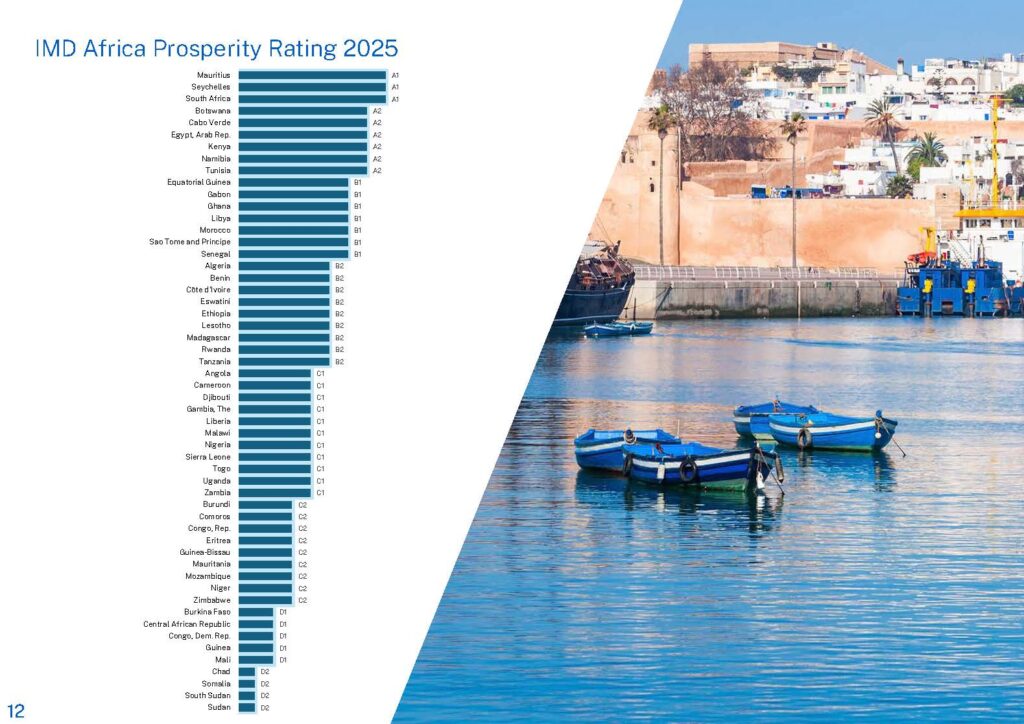
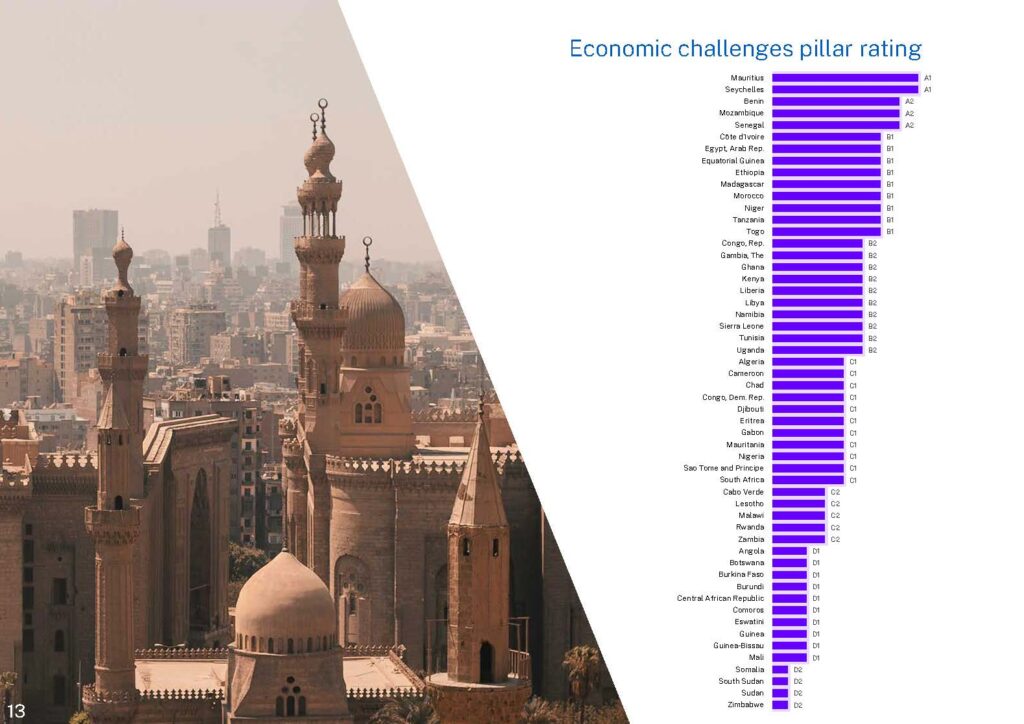
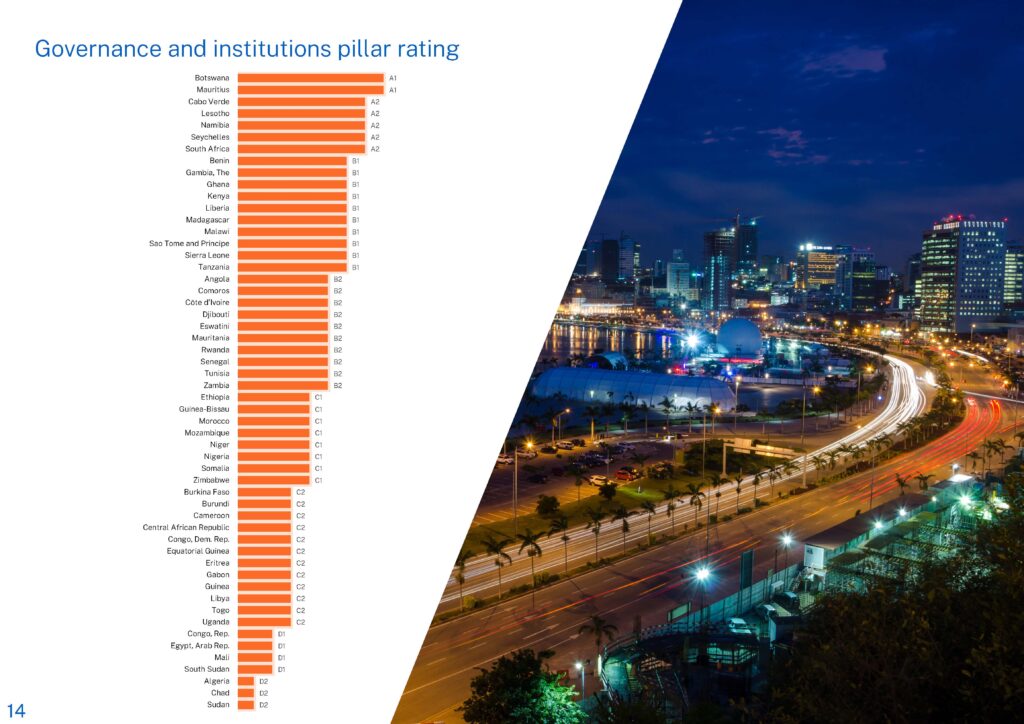
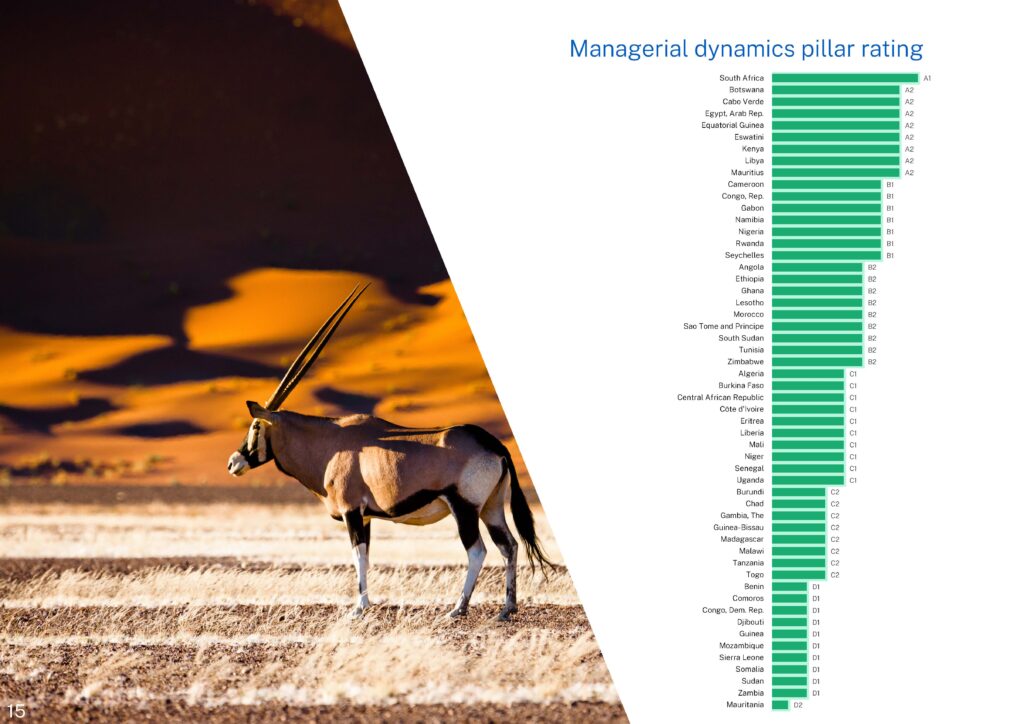
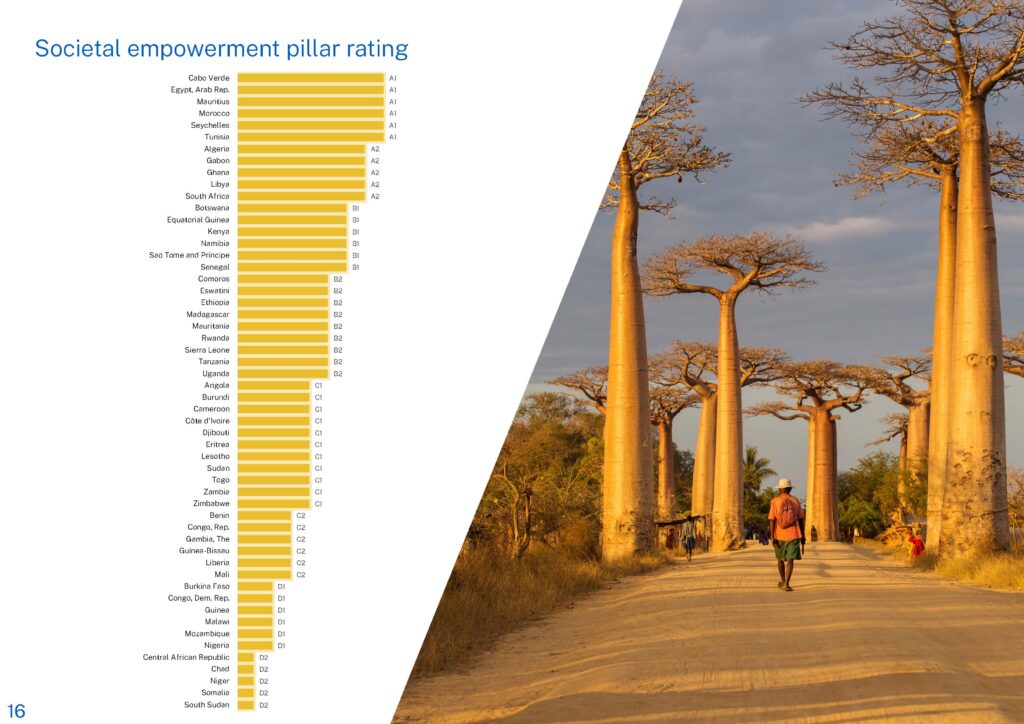
Unlike traditional approaches that rely heavily on GDP and a limited set of economic indicators, the Africa Prosperity Rating measures prosperity using 80 indicators that each fall into one of four pillars: economic challenges, governance and institutions, managerial dynamics, and societal empowerment.
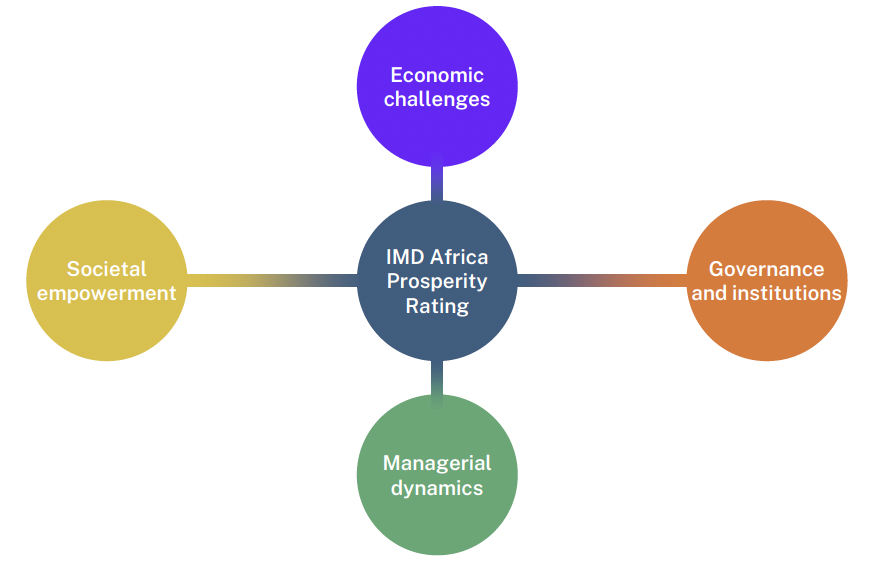
Discover our latest research and results on how countries compete to lay the foundations for sustainable value creation.





